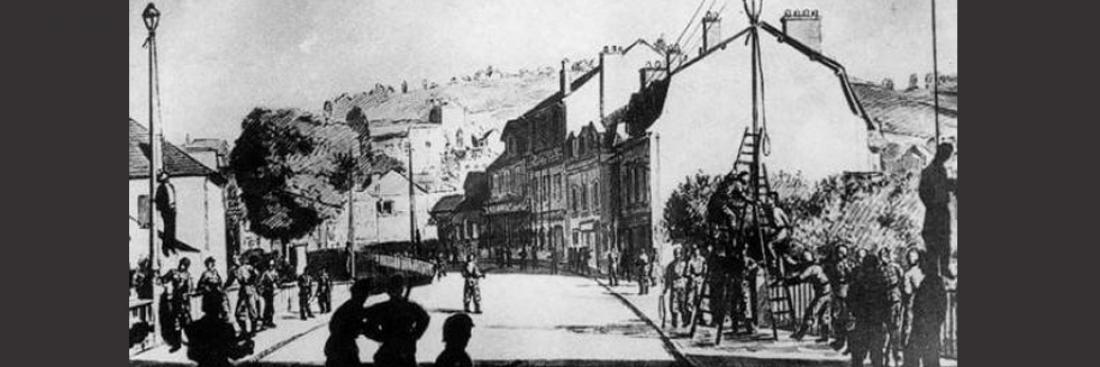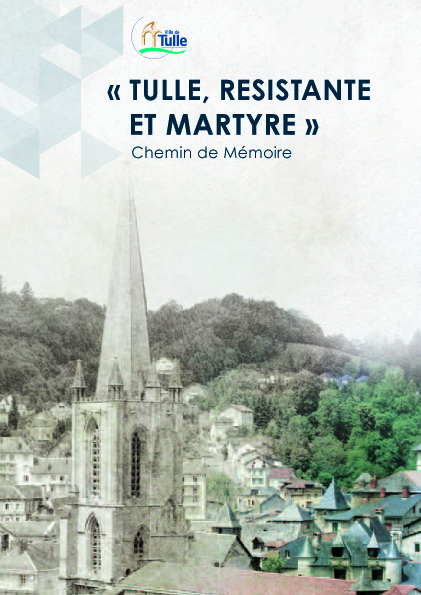The attack on Tulle, 7 and 8 June 1944

Men hanged in Tulle, on the bridge in the Souilhac quarter. Source: DR
The city of Tulle was attacked by the FTP resistance forces in a temporary occupation whose goal was to demoralise the German troops occupying the city.
Corps 1
It was a glorious attack; the city is located in a valley which made it easier for the resistance fighters who came down from the heights. On the 8th, the teacher-training school, which was occupied by the Germans, was set on fire. All the attempts to get out turned deadly and the survivors surrendered.
In the evening of 8 June, the Das Reich division took the city back. The best way of putting pressure on the resistance fighters was to cut off their contacts with the residents by committing atrocities. The next day, they rounded up all men between the ages of 16 and 60, officially for ID checks according to the messages broadcast throughout the city. The messages also promised that the men would be given their papers, notably an Ausweis. That is why many citizens of Tulle who could have escaped saw no reason to become illegals and went to the roundup site. The men were taken to the munitions factory, where those who were ”indispensable” to the city's repair work were freed.
The others were sorted into three groups by the presiding ZPOZD officer (another division of the German police), one of them arbitrarily made up of 120 people who had no idea what was awaiting them and were to be executed by hanging. A last-minute intervention reduced the number of men to 99. These men were buried at a garbage dump to add to the horror and to leave a mark in people's minds. Today it is called Tulle's ”field of martyrs”, a site for visits and contemplation. 311 hostages among those who remained in the factory were transferred to Limoges. The 149 hostages in the third group were sent for deportation to the Compiègne-Royallieu camp, a ”transit” camp, before leaving for the Dachau concentration camp. Of these 149 deportees, 101 never returned to their city. Ever since, a ceremony is held each year on 9 June. The balconies are full of flowers and a procession follows the route of the executions.
Corps 2
Chemin de Mémoire brochure on Tulle (can be viewed on line)
Source: State Secretariat for Tourism - Limousin regional delegation


